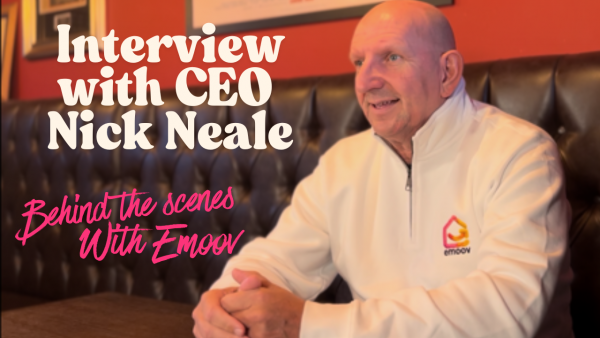General Election 2019: Stamp Duty

The manifestos are live! We recently speculated about each party's agenda in the UK housing market, and now we can all see what the Conservatives, Labour and the Liberal Democrats have in store for the property sector.
Stamp Duty has been a topic of hot debate ever since controversial plans to raise it by 3% for second homes came into play in 2015. The majority of homeowners have all suggested that it's high on their list of issues when it comes to property.
But what is the status of Stamp Duty heading into 2020? Was it a major part of each party's manifesto, and are there any significant plans to scrap the controversial 3%?
We've had another look through the manifestos to see what the future of Stamp Duty looks like in the UK.
But first, a quick Stamp Duty recap…
What is Stamp Duty?
Stamp Duty Land Tax is payable when you buy a residential property or a piece of land that costs more than £125,000 on first homes and £40,000 on second homes. The tax applies to freehold and leasehold properties.
How much does Stamp Duty cost?
Stamp Duty has different rates depending on the property purchase price. There is nothing to pay for the first £125,000, 2% on the next £125,000, and 5% on properties costing between £250,001 and £925,000. Buyers pay 10% on homes between £925,001 and £1.5 million and 12% on homes over £1.5 million.
Example:
If you bought a home for £350,000, you would need to pay £2,500 in Stamp Duty, as it falls in the 5% bracket.
What is the extra 3%?
In 2015, then-Chancellor of the Exchequer, George Osborne, announced an extra 3% charge on all second homes. It meant that people buying a second property would have to pay 3%, 5%, 10%, 13% or 15% Stamp Duty, depending on which bracket the value of the home fell into.
Example:
A £350,000 home would cost £18,000 in Stamp Duty, as you would be paying 5% instead of the typical 2% if it wasn't a second home.
Note:
It's also important to note that the extra 3% is on any home in addition to your current property. If you are selling your main residence and moving into another one, you won't be subjected to the extra 3% Stamp Duty.
The future of Stamp Duty
There was plenty of talk about Stamp Duty being a key topic in the manifestos, especially for the Conservatives. Prime minister Boris Johnson recently suggested he's in favour of lowering Stamp Duty, including reducing the 12% owed on homes over £1.5 million to 7%.
However, the latest manifesto from the Conservatives leaves Stamp Duty mostly untouched. There is a plan to add a further 3% for overseas buyers, which the Conservatives say will add £120 million to tackle rough sleeping in the UK.
Labour has also targeted foreign buyers, in what they say is an effort to stop unfair house price inflation. Under a Labour government, any foreign company purchasing a UK home would be forced to pay an extra 20% on top of existing Stamp Duty and surcharges. The Liberal Democrats also echo the policy.
UK-based buyers
As things stand, there won't be any major overhauls to Stamp Duty, with each party focusing on building new homes to help solve the UK's current housing crisis. However, once a new government is officially elected on December 12th, Stamp Duty could again find its way into the ether.
The topic of Stamp Duty is always a precarious one, with homebuyers from all levels of the property ladder affected. There is plenty of noise for a Stamp Duty reform, and it could still play a large role in any future governments' agenda.
Whether the Conservatives, Labour or the Liberal Democrats come into power on December 12th, there are still questions around Stamp Duty Land Tax. While changes won't be significant for UK-based buyers in the short term, it's still worth filing this one underwatch this space.


Selling This Spring? Here’s How to Get Ahead of the Competition
26.02.2026Spring is one of the busiest times to sell, but more listings mean more competition. Here’s how to price, photograph and position your home to stand out and secure early offers.
.png)
Sell or Let Your Property Yourself – Why More UK Homeowners Are Choosing to Go Online
03.02.2026Selling or letting a property no longer has to mean handing over thousands of pounds to a traditional estate agent.
(8).png)
How to Spot and Avoid Conditional Selling
15.01.2026Have you ever been told you need to use an estate agent’s mortgage broker or solicitor to have your offer considered? That’s called conditional selling - and it’s against the rules.

A Sit-Down Interview with Emoov CEO Nick Neale
02.12.2025Join us for a sit-down chat with our CEO, Nick Neale, as he shares the story behind Emoov, how the online agency began, and what drives the way we work today.

Why UK Homes Are Becoming More Affordable (And What It Means If You're Selling or Buying)
01.12.2025After years of house prices rising way faster than wages, things are starting to shift. With earnings growing faster than property values for the fourth year in a row, home ownership affordability is finally improving across the UK. But what does this mean if you're thinking of buying, selling, or trying to move up the property ladder? In this blog, we unpack the latest trends and offer practical advice for navigating a more balanced market - whether you’re doing it yourself or listing with Emoov.

Has Your Home Increased in Value? What 2025 Property Prices Mean for Sellers
30.10.2025Homeowners across the UK are asking the same question: has my property increased in value over the last few years? With new figures showing that over a million homes have jumped by more than 50% in value since 2020, it might be time to take a closer look. Whether you're considering selling, remortgaging, or just curious, here's how to understand your home's worth in today's market.









